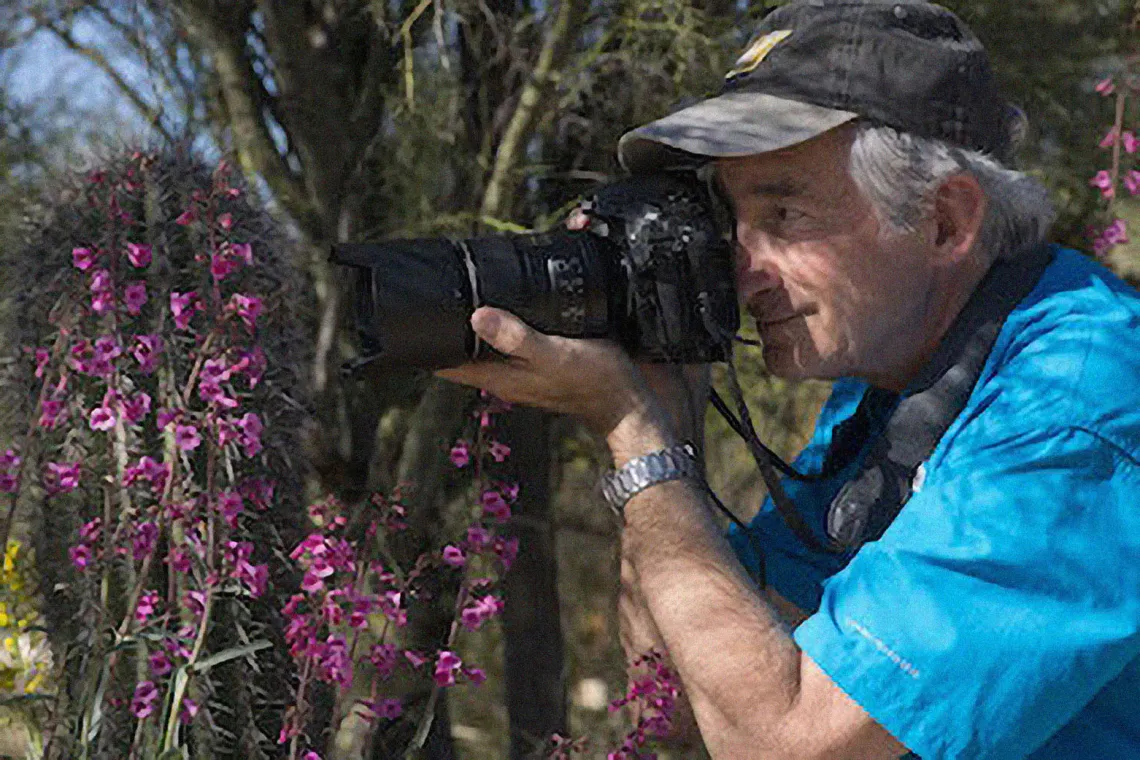A School of Landscape Architecture and Planning Lecture Series Event

When
Dr. Buchmann will discuss some of the common native bees of the Sonoran desert, detailing their lifestyles and behaviors. He will finish the talk by highlighting some Tucson area bee nesting habitats and by discussing what landscape architects and homeowners can do to provide nesting sites and nesting materials for them.
In person attendees are welcome to bring a lunch.
About Stephen Buchmann

Dr. Stephen Buchmann is a pollination ecologist specializing in buzz pollination and other native bee behaviors including nesting biology and mate selection. Recent research includes the chemical ecology of oil-producing flowers and their Centris bee pollinators, along with studying the brood cell microbiomes (bacteria, fungi) of solitary bees who need these microbial partners to remain healthy. Buchmann is an adjunct professor in the departments of Entomology and Ecology and Evolutionary Biology at the University of Arizona.
He’s authored ten books (including “The Forgotten Pollinators” and “The Reason for Flowers”) along with over 200 peer-reviewed scientific publications. Buchmann is a frequent guest on NPR programs including All Things Considered and Science Friday. He enjoys the role of science advisor, a bee and plant wrangler, for the BBC, National Geographic, and indie natural history documentary film producers and joins field cinematography teams around the world. He was Chief Scientist for the 2013 Disney nature film “Wings of Life” narrated by Meryl Streep. Buchmann’s recent books include “The Reason for Flowers” (Scribner, NYC) and his most recent non-fiction trade book title “What a Bee Knows” from Island Press (DC) published in March, 2023. He’s currently writing a new book about the world’s earliest insect pollinators, known only from fossils, and the rise of flowering plants in the Cretaceous.
